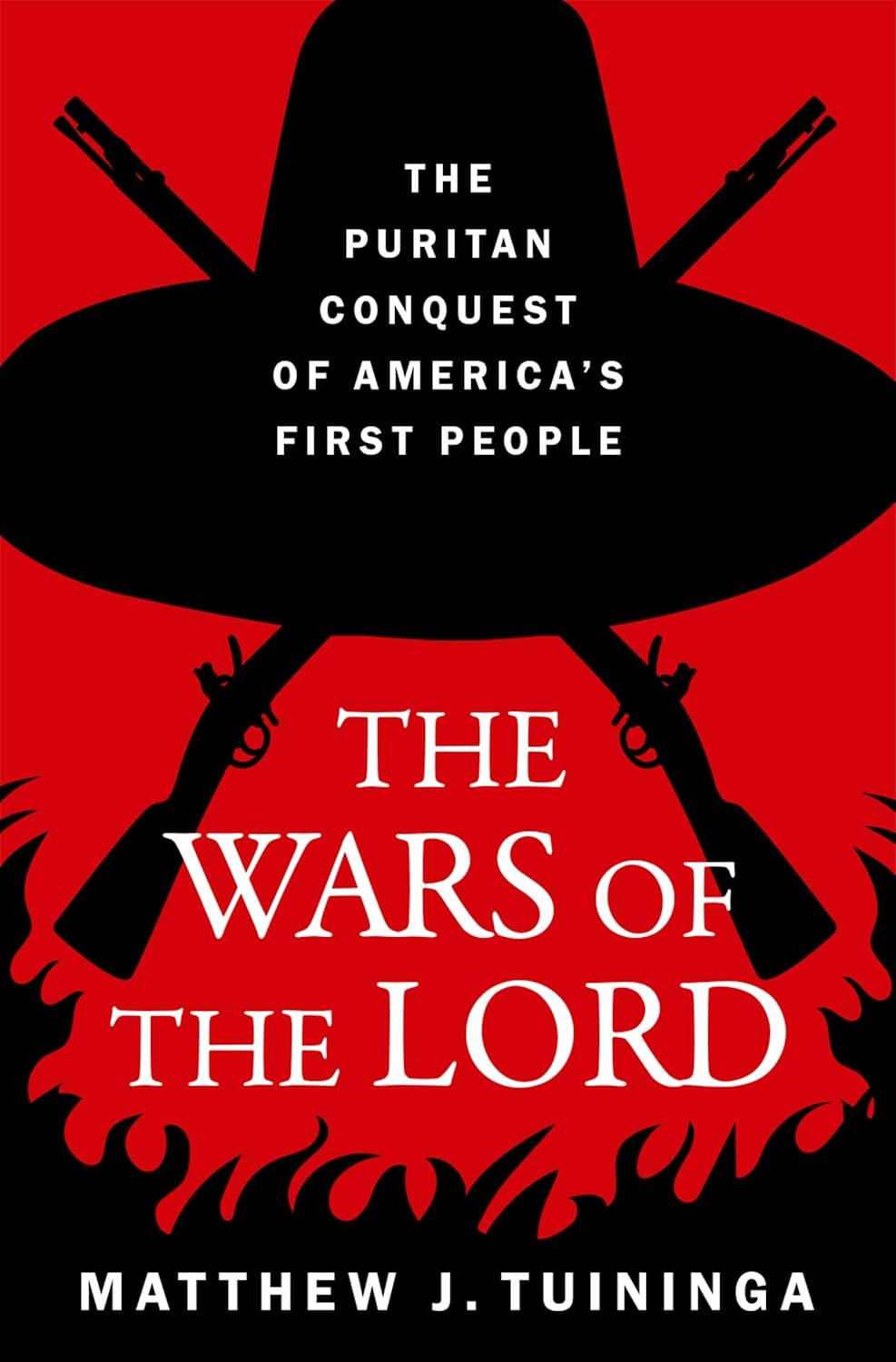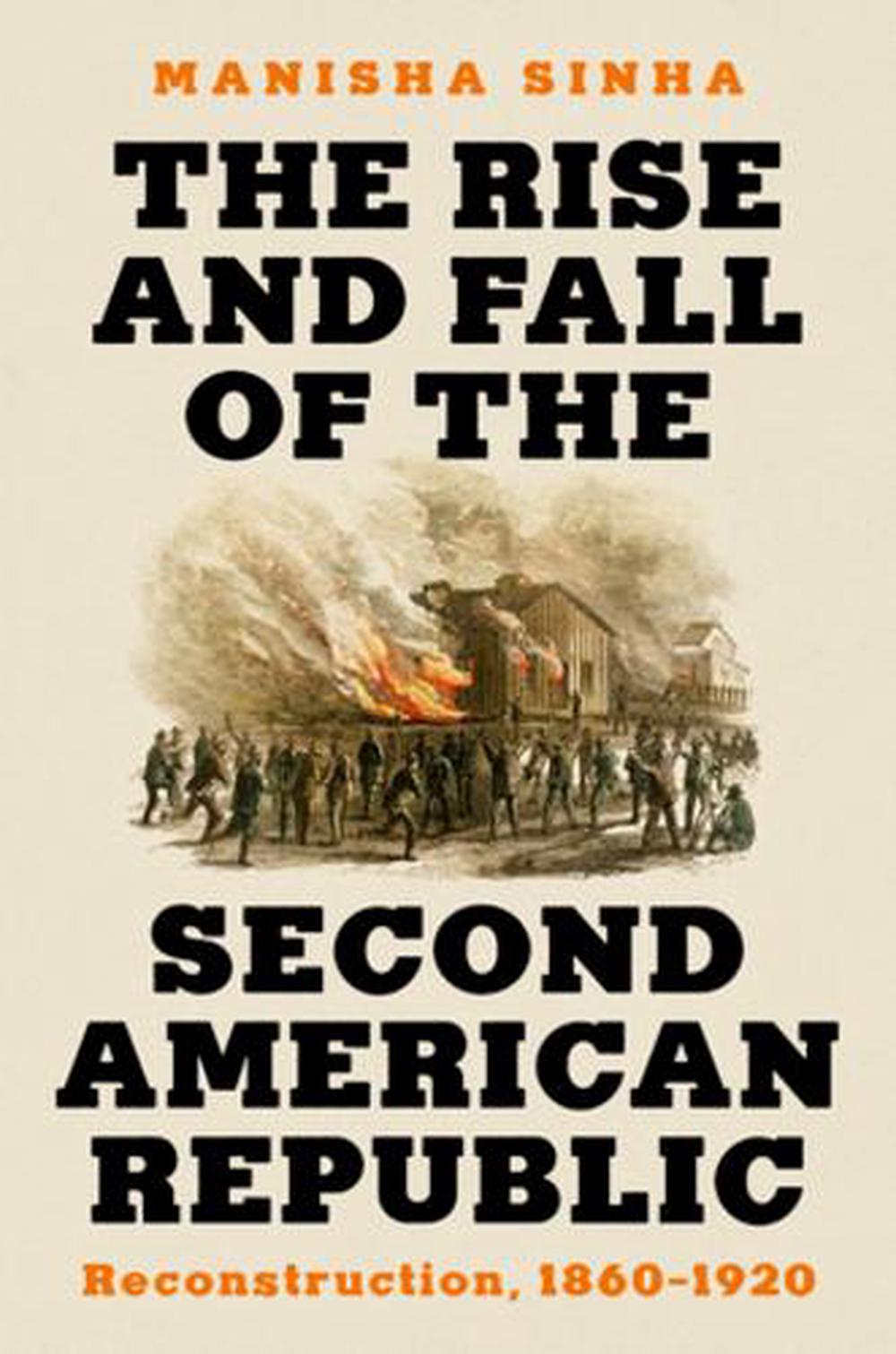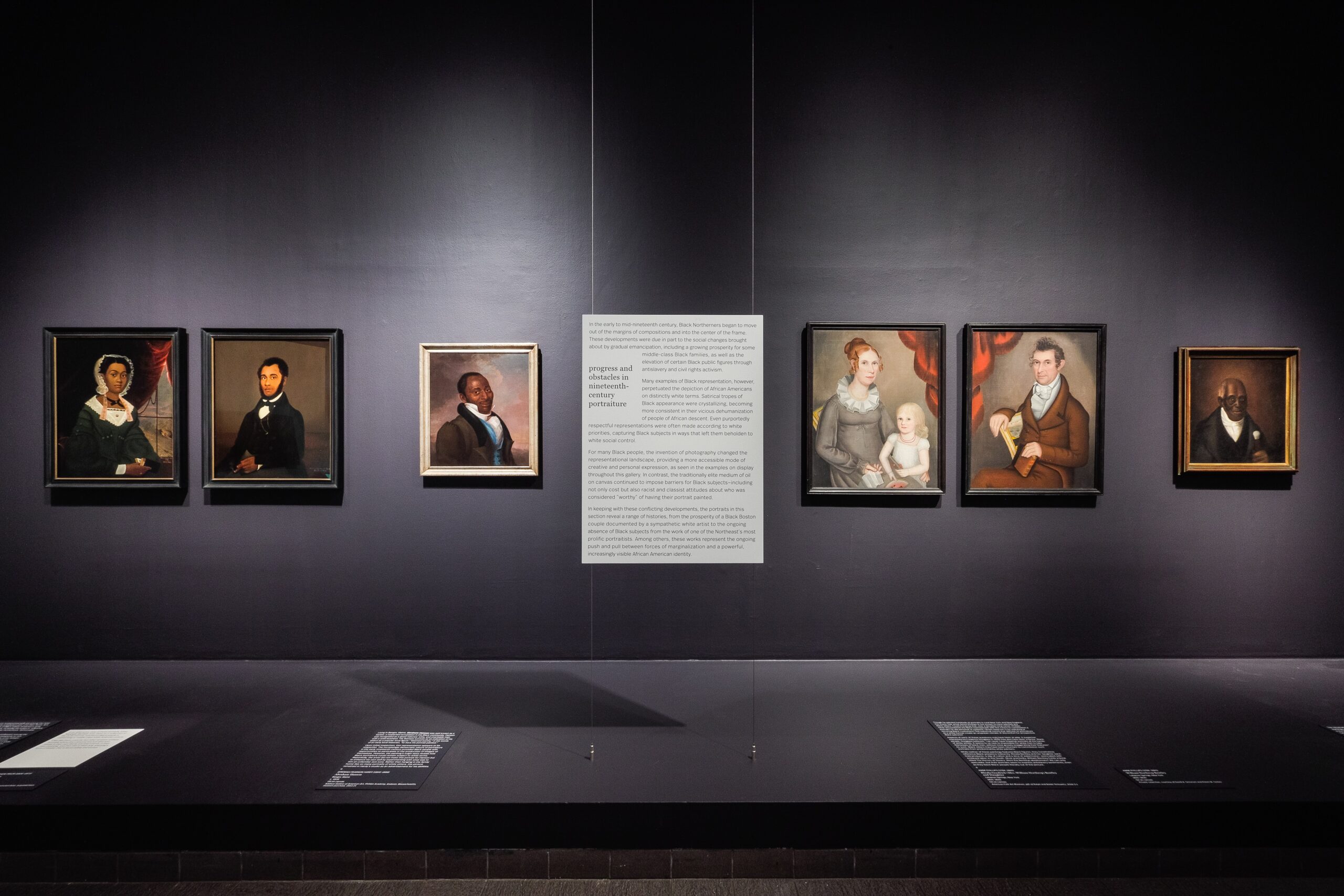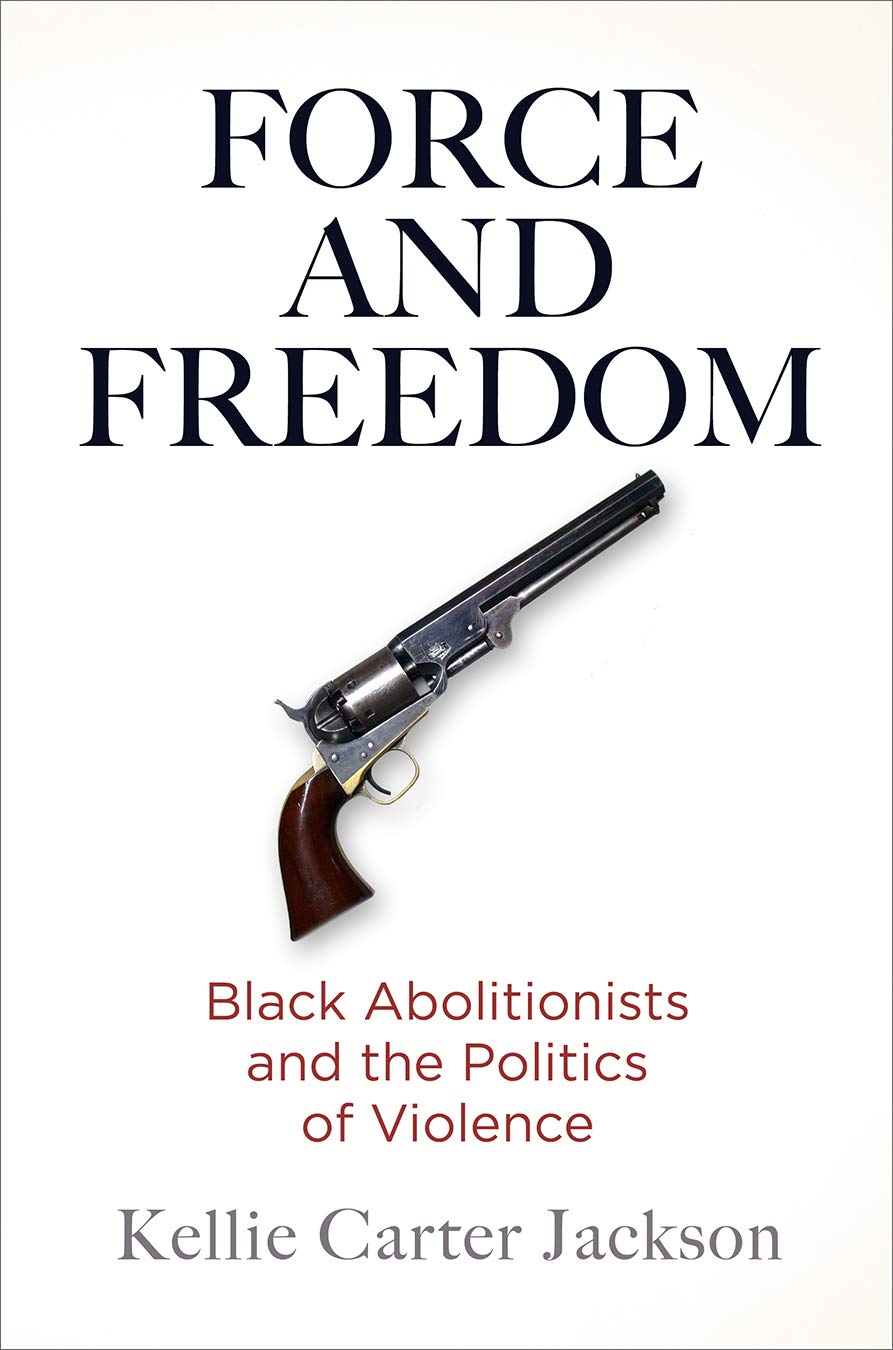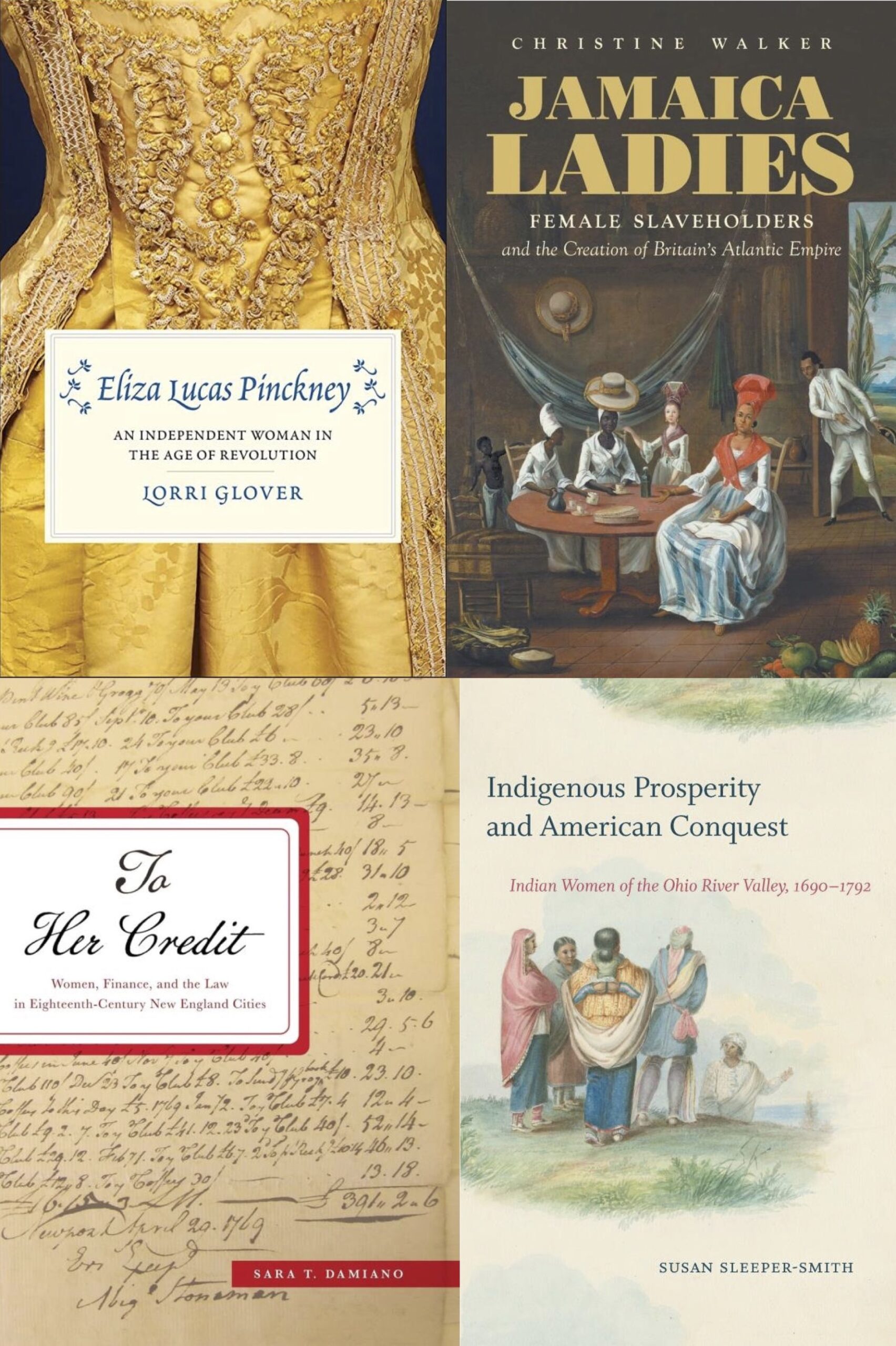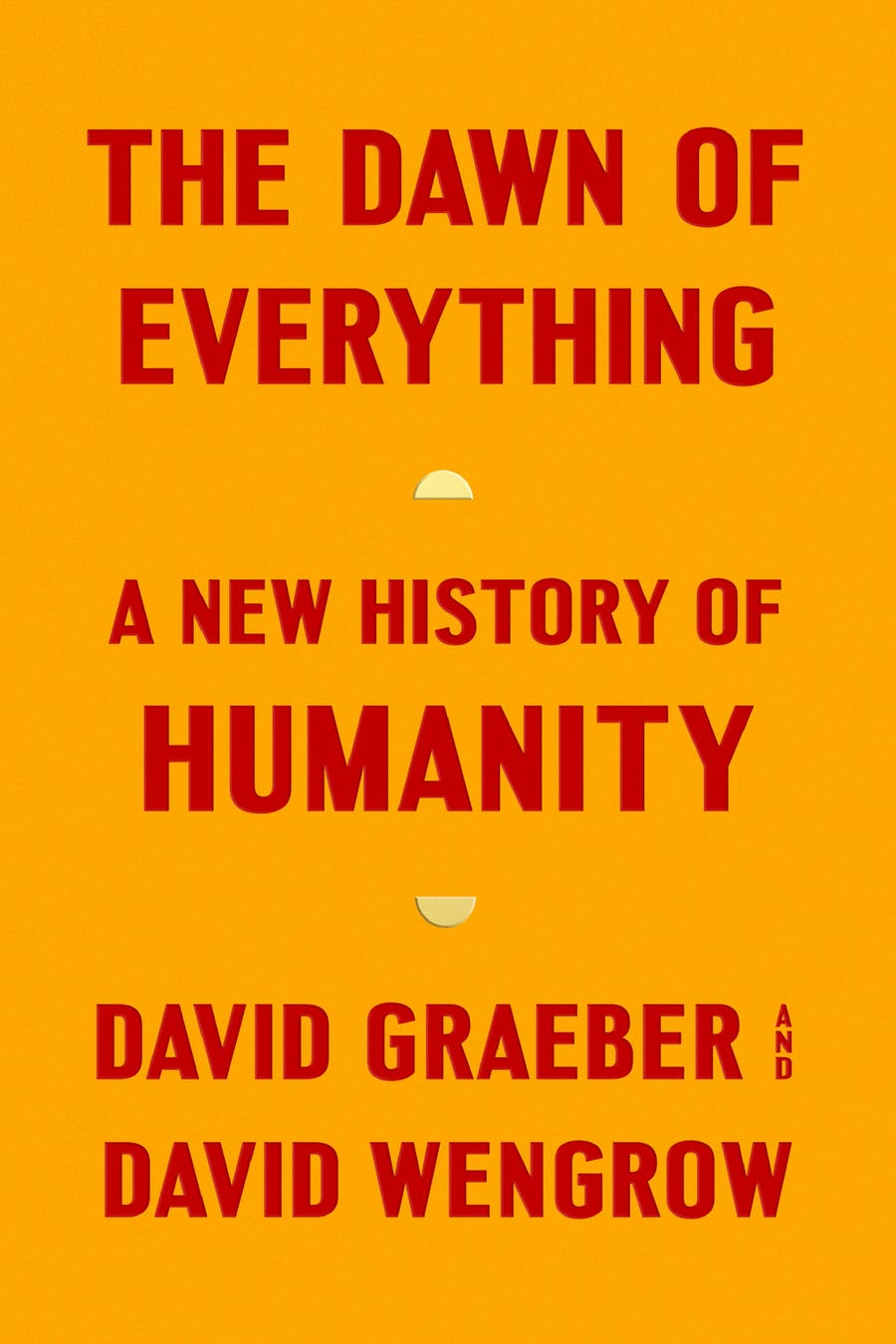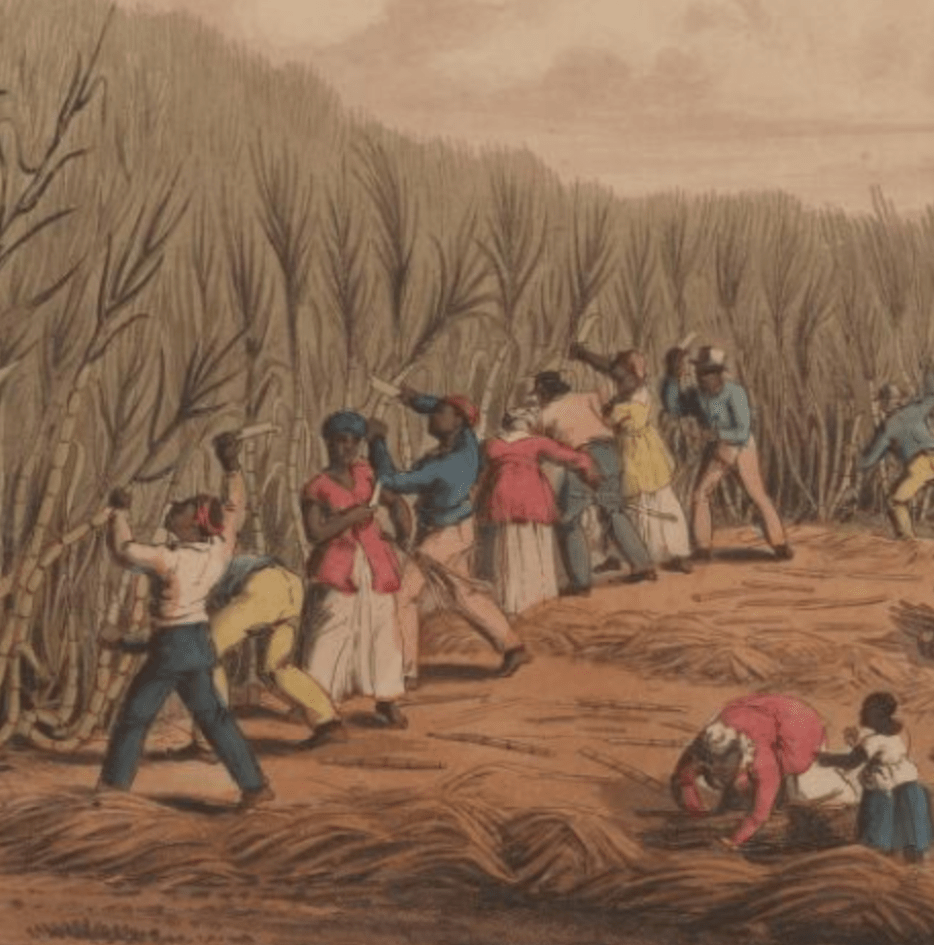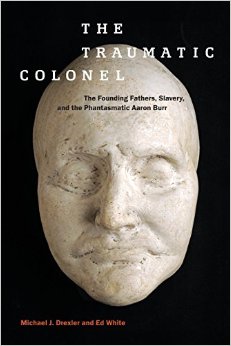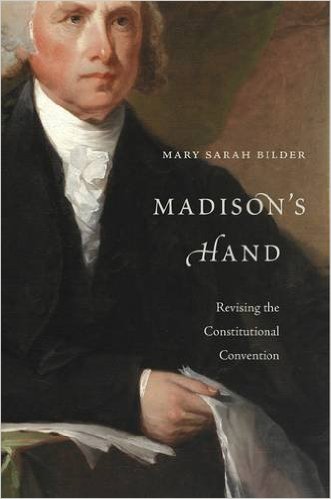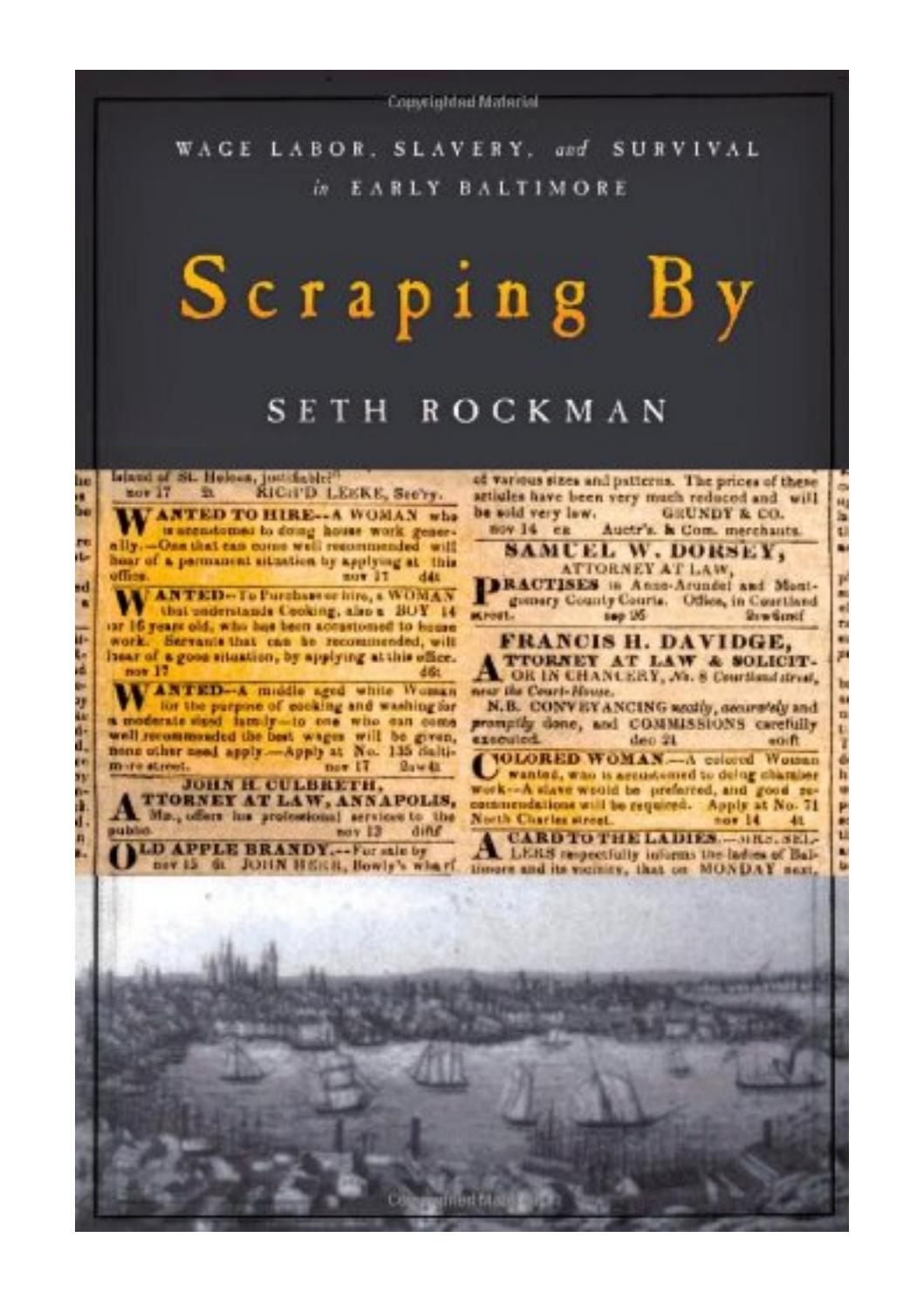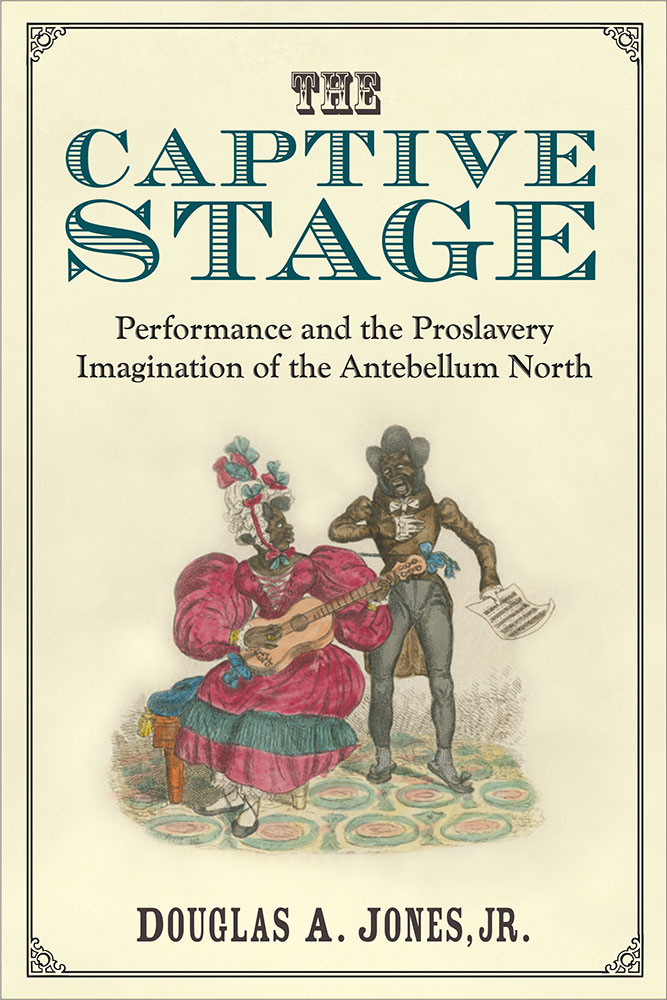If the horrors of slavery were reducible to those tropes codified by the stewards of modern American abolitionism, the quest to secure the safety of Broomhilda (Kerry Washington) in Quentin Tarantino’s epic antebellum revenge fantasy, Django Unchained, arguably demonstrates one of the most salient features of antislavery historiography. Besides the film’s opening coffle gang sequence, viewers are afforded fairly suggestive representations of a slavocracy mired in mass societal immorality. A quick scan of the vice and cruelty graphically portrayed in the American Antislavery Society’s 1840 illustration “Our Peculiar Domestic Institutions” all but parallels the lurid violence that veteran bounty hunter Dr. King Schultz (Christoph Waltz) and nominally free Django (Jamie Foxx) encounter on the road to the plantation estate of Mandingo fighting enthusiast Calvin Candie (Leonard DiCaprio), the last known master of Broomhilda.
But the panoramic cultural imaginary that is revealed through Django’s exceptional tale as “one nigger in ten thousand” does more than demonstrate the corrupting influences of antebellum slavery. As Django’s roaming apprenticeship across the Southwest exposes viewers to the institution’s sordid profligacy, the development of his aptitude as a hired marksman clarifies the heroic individualism that is typical of male-authored canonical slave narratives. By this I mean to say that Tarantino’s variation on the genre of fugitive slave autobiography allows us to see anew the self-serving rhetorical properties of ex-slave narrators, and challenges us to reconsider those contemporary moralizing frameworks that influence our view of the black antebellum past. Unlike the conventional slave narrative, in which the autobiographical subject’s investment in reaching the “free” North is bound up with the author’s presentation of a dynamically unfettered sense of selfhood, Tarantino’s decision to have Django forego this vertical journey and travel deeper into the heart of the South realizes an alternative means of understanding the constructedness of the fugitive slave as hero. Beginning with the outlaw Brittle Brothers, whom Django can identify for Schultz and whom he takes part in killing, it’s impossible not to read the ex-slave’s subsequent trail of cathartic violence as a serial reenactment of Frederick Douglass’s manhandling of the slavebreaker Covey in his Narrative of the Life of Frederick Douglass (1845).
In the scant dialogue that Django shares with his fellow slaves, scarcely a comment rises above the level of derision. As a dandified gunslinger, his total indifference to their plight is only matched by his preternatural grit and independent mien. While some reviewers decry this construction of the freed slave as an individualistic hero as perversely revisionist, such criticism is at odds with the social politics that govern most conventional slave narratives. Although ex-slave autobiographers such as Frederick Douglass and William Wells Brown took great efforts to incorporate the communal life of slaves into their autobiographies, the mandates of professional abolitionism also required that they pattern their slave experiences after motifs of enlightenment and exception. That is, in order to represent themselves as self-made men within the antebellum context of republican oratory and life writing, their stories of personal triumph necessitated accounts of singularity. With this in mind, even if Django’s quest constitutes a geographical inversion of the slave autobiography’s narrative of ascent, it is the personalization of Django’s slave experience as distinct from all others—particularly his unique knowledge of the Brittle Brothers and his extraordinary skill with a gun—that brings about his liberation at the hands of Schultz.
How Tarantino contextualizes Django’s reluctance to engage his fellow slaves is perhaps where the filmmaker makes his most important intervention into antislavery historiography. Given the absolute treachery of Stephen (Samuel L. Jackson), Candie’s loyal house slave and plantation manager, Django’s reticence is most likely attributable to his fear that duplicitous slaves will betray his heroic objectives. This very concern for deceit figures in most slave narratives and antislavery fiction, but is often abbreviated so as to not undermine abolitionism’s pedagogy of empathy. We especially see this in Frederick Douglass’s novella “The Heroic Slave,” wherein the intrepid Madison Washington provides a brief commentary on slave disloyalty. After Washington’s initial escape results in his having to return to his master’s plantation “hungry, tired, lame, and bewildered,” Douglass allows him a few pithy lines that elevate his heroic fugitive status at the expense of his degraded counterparts: “Peeping through the rents of the quarters, I saw my fellow-slaves seated by a warm fire, merrily passing away the time, as though their hearts knew no sorrow. Although I envied their seeming contentment, all wretched as I was, I despised the cowardly acquiescence in their own degradation which it implied, and felt a kind of pride and glory in my own desperate lot. I dared not enter the quarters,—for where there is seeming contentment with slavery, there is certain treachery to freedom.” If the contradistinction posed by Washington serves as a proxy for Douglass’s thoughts on racial treason, a character as well developed as Stephen breathes much needed life into the un-heroic slave, one of the least theorized subjects of antebellum slave culture. From behind Stephen’s mask of obsequious dissimulation, Tarantino reveals a check writing, thoroughly literate administrator, who ultimately outsmarts the calculating Django and Schultz. In other words, Stephen’s compromised autonomy not only rivals the exceptional nature of Django’s willfulness but it also posits his position on the plantation as an alternative site of productive agency. While this ambivalent figure is often rendered mute in antislavery literature as a result of narrative gloss and exaggerated caricature, the un-ironic representation of Stephen’s custodial power encourages more serious scholarly reflection on the topic of master-slave collusion. Is it possible, for instance, to develop an ethical account of co-option that allows for the moral ambiguities cultivated under slavery? Besides facilitating the rhetorical agendas of their authors, what, we might ask, can these unsympathetic collaborators reveal about the absoluteness of slave power?
According to historian Jelani Cobb, Tarantino’s use of Stephen “as a comic foil seems essentially disrespectful to the history of slavery,” since “[o]ppression, almost by definition, is a set of circumstances that bring out the worst in most people.” What’s troubling about this logic is that on the one hand it insists on moralizing the peculiar institution’s punitive features in order to demonize the system of slavery, while on the other it remains seemingly ambivalent about qualifying the complex experiences of those millions who remained in chattel bondage. But there can be no actual history of slavery, to paraphrase William Wells Brown, let alone a respectful one, in the face of such radical inhumanity. What is more, when we take into account Hortense Spillers’s argument that slavery functions “primarily” as a “discursive” system, which “every generation of systematic readers is compelled […] to reinvent,” questions of historical appropriateness become querulous at best. What matters most in Django, then, is not the accuracy of the film’s historical claims but how Tarantino’s awareness of his contemporary audience mediates his symbolic enterprise. Ironically, this issue of creative exigency is nowhere more evident than in the narratives of those ex-slaves who found it necessary to rewrite their autobiographical experiences as a means to address their ever-evolving political circumstances. Indeed, if Stephen’s presence is “disrespectful to the history of slavery,” one has to wonder what scholars such as Cobb would make of William Wells Brown’s comedic use of Cato in My Southern Home: or, The South and Its People (1880), or the litany of literary descendants who trouble the collective ethos of black bourgeois norms. Consider, for example, the intraracial bigotry of Ralph Ellison’s Dr. Bledsoe from Invisible Man(1952), the pornographic exploits of the fugitive slave Leechfield in Ishmael Reed’s Flight to Canada (1976), or the darkly humorous protocols aboard the Celebrity Slaveship courtesy of George C. Wolfe’s The Colored Museum(1988).
Although the overwhelmingly positive reviews of Django give the appearance of Tarantino having successfully negotiated the ongoing controversy that is American slavery, the auteur’s final decision to excise archetypal scenes of violence from Django so as to avoid traumatizing his audience and enable the film’s cathartic denouement should give cultural historians some pause. The removal of the spaghetti western flashback in the film’s opening sequence, which includes Django’s confinement to the slave pen, the auctioning of fellow slaves, and the eventual rape of Broomhilda elides the very substantive acts of violence that antebellum antislavery writers could only address via quill and paper. Is it possible then that we are further now than our abolitionist forebears were from achieving some meaningful interaction with the traumatic history of slavery? Perhaps. But if we believe as Friedrich Nietzsche asserts in his second Untimely Meditationthat “only if history can endure to be transformed into a work of art will it perhaps be able to preserve instincts or even evoke them,” we are all the better for Tarantino’s irreverent attempt to disturb our collective memory.





